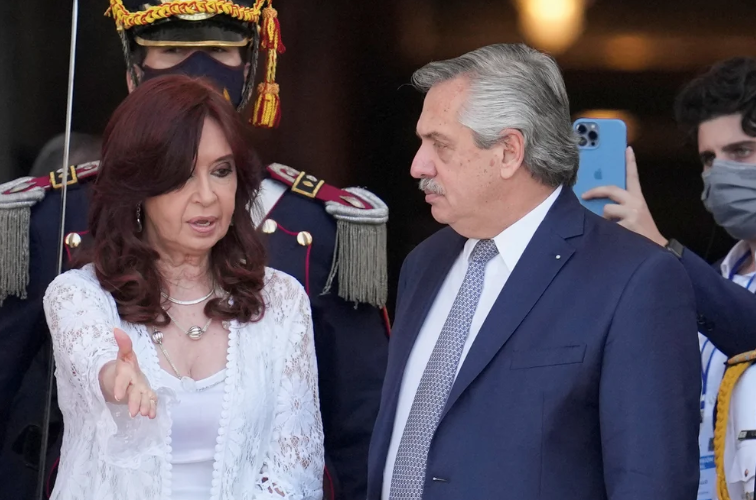The government of Alberto Fernández, of the Frente de Todos coalition, took office on 10 Dec., 2019. It emerged within the framework of a political strategy to defeat the then officialism of Together for Change (Juntos por el Cambio), led by Mauricio Macri. Such a strategy, outlined by Cristina Fernandez de Kirchner, constituted the new government as a power coalition, rather than a government coalition.
A government coalition is understood as an agreement between two or more political forces around a relatively consensual political program and that keeps aspects that are considered fundamental by the forces that comprise the coalition. Moreover, a power coalition is the agreement of two or more political spaces or forces with the sole objective of winning an election.
The 2019 presidential election in Argentina had this characteristic: An agreement between Kirchnerism and sectors of non-Kirchnerista territorial Peronism, which partnered with the understanding that the largest space of the coalition—the movement led by Cristina Fernández—wouldn’t win the election on its own. So much so that the natural leader of the movement, Fernández, relegated herself to the position of vice-president in the electoral formula. Although the triumph was clear, four years with a lack of consensus in the government are looming on the horizon.
The pandemic, which emerged as soon as the government took office, generated another political scenario. Its management allowed for the presidential figure of Alberto Fernandez to take center stage. Frente de Todos was still a common front. However, as the months went by and the governments were forced to manage not only the health crisis, but also the economic crisis caused by lockdowns and the fall in activity, differences within the coalition emerged.
Disagreements arose: the return to on-site education, the continuity of the health policy, the fiscal requirements, the relationship with the districts governed by the opposition and the progressive inflation that delayed the recovery of consumption. In short, issues that agitated the government agenda and which began to make the electoral agreement crackle.
Still, the issue that led to the current fracture —not very explicit— was the need to address what in times of pandemic could have been postponed: The negotiation with the International Monetary Fund for the refinancing of the debt maturity. A debt, largely contracted during the Macri administration that neither the government nor the Argentine economy were prepared to face.
The agreement with the IMF required, as has always been the case, a significant fiscal adjustment that was difficult to sustain from an electoral perspective, taking into account next year’s presidential elections and an inflationary context and economic recession due to the pandemic.
The warning was the electoral defeat of the ruling party in the November 2021 midterm elections, which allowed the opposition to equalize forces in Congress.
The fissure prior to the signing of the agreement with the IMF had been dividing the main partners of the former power coalition: Kirchnerism on the one hand and “Albertismo”, in addition to most of the Peronist governors, the CGT—the main trade union confederation—and the main social organizations on the other.
On the opposite side, the opposition of Juntos por el Cambio, which used to be a government coalition between 2015 and 2019, and which is sustained as a programmatic agreement beyond its different political origins, began to celebrate in silence.
Still, the division within the government became official with the parliamentary treatment of the law that the president derived to approve the agreement with the IMF. The parliamentary approval, which was not requested by the Fund, was likely sent by the President to definitively measure forces. The agreement was approved in Congress with the votes of “albertismo” and the opposition, and the rejection of kirchnerism, the other partner of the Frente de Todos.
What has followed the parliamentary approval is a media war between the former partners, and has become more and more bitter every day, for the benefit and electoral calculation of the opposition.
Current politics, especially in Latin America, is basically made up of agreements between different political and social forces, whose main, or rather, legitimate objective is to win elections. But reality is showing—with Lenin Moreno, Bolsonaro, Fernandez, Castillo and perhaps AMLO—that, after an electoral triumph, it is necessary to govern. But without solid foundations and programmatic agreements, those electoral triumphs could be transformed into pyrrhic victories.
Nevertheless, the main problem is that those who suffer these disagreements and the impact of internal fights within governments are not exactly their protagonists, but rather the societies.
Translated from Spanish to English by Ricardo Aceves













